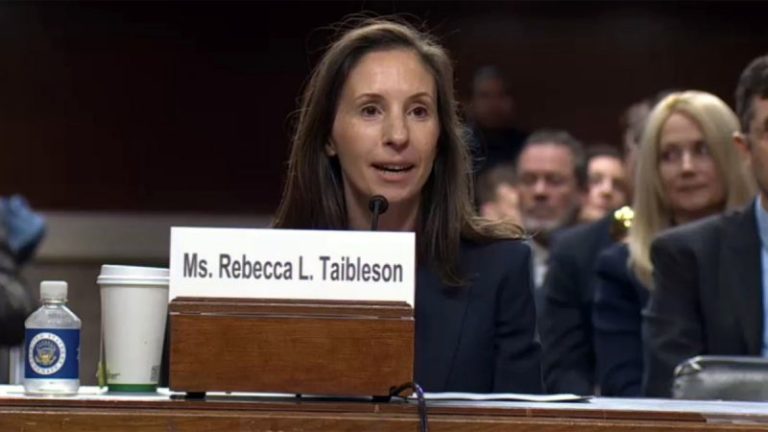Gold hit yet another new price record this week, rising past US$3,700 per ounce.
The yellow metal broke that level on Wednesday (September 16), the first day of the US Federal Reserve’s meeting, and then did it again the next day just after the gathering wrapped up.
The Fed was widely anticipated to cut interest rates, and that’s exactly what happened — it announced a 25 basis point reduction to the 4 to 4.25 percent range, with Chair Jerome Powell describing it to reporters as a ‘risk-management cut.’
Although inflation is still outside the Fed’s 2 percent target, Powell said the central bank has shifted its focus toward the jobs market due to a change in the balance of risks — in his view, it’s no longer possible to call the labor market ‘very solid.’
‘Labor demand has softened, and the recent pace of job creation appears to be running below the break-even rate needed to hold the unemployment rate constant.’ — Jerome Powell, US Federal Reserve
All Fed governors were in favor of the 25 basis point cut, with the exception of new addition Stephen Miran, who wanted to see a 50 basis point decline. Miran, who is on leave from his position at the White House Council of Economic Advisers, was confirmed by the Senate this week. He was selected by US President Donald Trump to replace Adriana Kugler.
Miran’s new role at the Fed has raised questions about the central bank’s independence, as Trump has now nominated three out of seven governors. Lisa Cook, who Trump attempted to fire in August, ultimately did not lose her position after a federal appeals court ruling.
Looking forward, the Fed’s latest dot plot shows policymakers expect two additional 25 basis point cuts this year, which would take rates to the 3.5 to 3.75 percent level.
In 2026, they are currently anticipating only one quarter-point reduction.
Going back to gold, it took a breather after passing US$3,700, sinking back down to the US$3,640 level after the Fed’s meeting. It was back at up at US$3,685 as of Friday (September 19) afternoon.
While that’s a fairly big move in a short amount of time, many experts agree that right now it’s the big picture that’s important for gold, not day-to-day factors.
Here’s how Will Rhind of GraniteShares explained it:
‘I think the main thing that’s driving gold, like I said, is this alternative to the dollar. People want an alternative to fiat money and particularly the dollar, and also to traditional stocks and bonds. And so gold’s appeal as being a genuine alternative, an uncorrelated alternative grows by the month, seemingly.’
Bullet briefing — Gold M&A heats up, GDX switches index
Newmont announces sale of Coffee
Denver Gold Group hosted its Mining Forum Americas in Colorado Springs this week, bringing together the gold sector’s major players — and with them a slew of news.
Among the major transactions announced was Newmont’s (TSX:NGT,NYSE:NEM,ASX:NEM) sale of its Yukon-based Coffee project to explorer Fuerte Metals (TSXV:FMT,OTCQB:FUEMF), formerly Atacama Copper, for total consideration of up to US$150 million.
The Coffee transaction is the latest in a series of divestments from Newmont, which is looking to cut costs and hone in on tier-one assets after buying Newcrest Mining in 2023. Once the deal goes through, Newmont will have sold all six operations and two projects it set out to trim.
‘The sale of the Coffee Project reflects our ongoing efforts to streamline the portfolio and sharpen our focus on core operations’ — Tom Palmer, Newmont
During the last gold bull market, major miners were criticized for doing high-priced deals and letting costs spiral out of control — this time, they appear to be taking steps to avoid that.
Alamos to divest Turkish subsidiary
Also divesting an asset this week was Alamos Gold (TSX:AGI,NYSE:AGI), which said it plans to sell its Turkish subsidiary to a unit of industrial conglomerate Nurol Holding.
The US$470 million agreement will take several assets off Alamos’ hands, including its Kirazlı gold project, which has been blocked since 2019, when its mining licenses were not renewed amid protests. Alamos filed a $1 billion claim against Turkey in response, but said arbitration will be suspended and ultimately discontinued if certain contractual milestones are met.
‘This transaction marks a positive outcome, allowing us to crystallize significant value for our Turkish assets, and utilize the proceeds to support the development of our portfolio of other high-return growth projects’ — John A. McCluskey, Alamos Gold
Zijin Gold plans IPO
Zijin Gold International, which operates all of Zijin Mining Group’s (OTC Pink:ZIJMF,HKEX:2899,SHA:601899) mines outside of China, is lining up a Hong Kong initial public offering (IPO) that could raise over US$3 billion.
Trading is set to begin on September 29, and the deal will value Zijin Gold at US$24.1 billion. According to Zijin Gold’s prospectus, it ranks ninth and eleventh globally in terms of gold reserves and production, respectively. The IPO is reportedly the world’s largest since May, and of course comes as gold continues on its record-setting price run.
GDX makes index switch
The VanEck Gold Miners ETF (ARCA:GDX), better known as GDX, began tracking a new index on Friday. It now follows the MarketVector Global Gold Miners Index.
VanEck announced the change at the beginning of June, saying that it would coincide with GDX’s regular index reconstitution and rebalance cycle. In an update this week, the company shared how the shift will impact weightings for its holdings. While in many cases the difference is less than a percentage point, there are some larger changes — for example, Newmont’s weighting is falling by 6.04 percent; in addition, some companies have been removed or added.
So far VanEck hasn’t announced changes for the VanEck Junior Gold Miners ETF (ARCA:GDXJ). Adjustments to that fund could be interesting — market participants often note that it doesn’t provide true exposure to exploration-stage companies.
Securities Disclosure: I, Charlotte McLeod, hold no direct investment interest in any company mentioned in this article.


